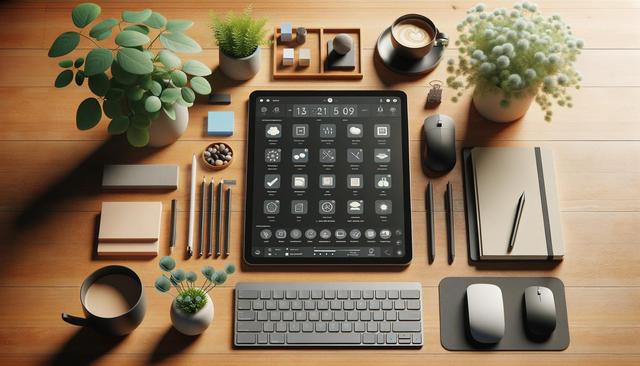Why Digital Declutter Challenges Are Worth Your Time
In a world where digital overload is the norm, taking time to declutter your digital life can offer surprising benefits.

The Rise of Digital Clutter
With the increase in digital devices and online services, many people find themselves buried under a mountain of digital clutter. From overflowing inboxes to countless unused apps, the digital world can quickly become as chaotic as a messy room. This clutter not only affects productivity but can also have an impact on mental well-being. Digital declutter challenges have emerged as a response to this growing issue, offering structured ways to regain control over digital environments. These challenges highlight the importance of intentional technology use, encouraging individuals to evaluate what digital tools truly add value to their lives.
Digital clutter can be subtle. It may manifest in the form of endless notifications, duplicated files, or even digital subscriptions that are no longer beneficial. Identifying these sources of clutter is the first step toward a more streamlined and focused digital life. The goal isn’t to go completely offline, but to be more mindful of how technology is used daily.
Understanding a Digital Declutter Challenge
Digital declutter challenges typically involve a set of daily or weekly tasks designed to help participants clean up and organize their digital lives. These challenges vary in scope and duration, from 7-day goals to intensive 30-day programs. Most challenges break down tasks into manageable steps to avoid overwhelming participants. Common activities include:
- Unsubscribing from unnecessary email lists
- Deleting unused apps and software
- Organizing digital files and folders
- Setting screen time limits
- Turning off non-essential notifications
Participating in such a challenge can provide structure and motivation, especially for those who struggle with tech overuse. By making small, consistent changes, individuals can experience noticeable improvements in focus, digital organization, and even free up storage space on devices.
Psychological Benefits of Digital Decluttering
Reducing digital clutter can have a positive impact on mental clarity and emotional well-being. Constant digital noise often leads to cognitive overload, making it difficult to concentrate and increasing feelings of stress. By participating in a digital declutter challenge, individuals often report feeling more present and less anxious. They also find it easier to prioritize tasks and reduce procrastination.
The act of simplifying digital spaces mirrors the benefits of physical decluttering. Just as a clean workspace can enhance productivity, a well-organized digital environment can reduce distractions and boost motivation. This is especially relevant for remote workers and students who rely heavily on digital tools for their daily responsibilities.
Tips for a Successful Digital Declutter
While digital decluttering may seem straightforward, staying consistent can be challenging. To make the most of a digital declutter challenge, consider the following tips:
- Set realistic goals: Start small and gradually increase the scope of your efforts.
- Use decluttering tools: Employ apps or built-in features to help identify and remove clutter.
- Be intentional: Evaluate whether each digital item serves a clear purpose.
- Create habits: Develop routines for regular digital maintenance, such as weekly inbox cleaning.
- Limit digital intake: Be selective about what you download or subscribe to moving forward.
Keeping a journal of your progress can also be beneficial. Reflecting on what changes you’ve made and how they affect your daily routines can reinforce positive habits and help you sustain the improvements long-term.
Long-Term Impact and Maintenance
Completing a digital declutter challenge is just the beginning. The key to long-term success lies in maintaining the habits developed during the challenge. Regular digital check-ins, monthly file organization, and periodic app reviews can help prevent clutter from building up again. Consider setting aside a specific day each month to assess your digital spaces and make necessary adjustments.
Moreover, awareness of your digital consumption habits is essential. Being mindful of how much time is spent on specific apps or websites can lead to better time management and increased productivity. Many individuals find that digital minimalism—prioritizing meaningful and necessary digital tools—becomes a lifestyle rather than a one-time project.
Conclusion: Reclaim Your Digital Space
Digital declutter challenges offer a practical way to address the growing problem of digital overload. Whether you’re looking to improve focus, reduce stress, or simply organize your digital tools more effectively, these challenges provide a structured path toward clarity and control. For anyone feeling overwhelmed by their digital environment, participating in a digital declutter challenge can be a meaningful first step toward a more balanced and intentional relationship with technology.